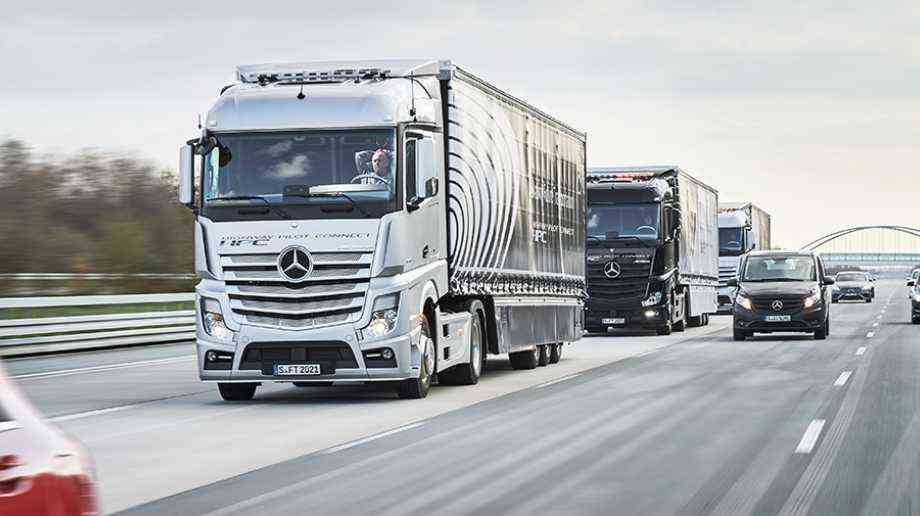
Platooning lorries: how are they green?
Platooning trials funded by the government will see three partially-autonomous lorries travel in a convoy on UK motorways. Transport Business finds out what the environmental benefits will be
The UK’s first HGV ‘platooning’ trial has been given the green light. The £8.1 million trial will see up to three heavy goods vehicles, travelling in convoy, with acceleration and braking controlled by the lead vehicle.
All lorries in the platoon will always have a driver ready to take control at any time.
It will be carried out in three phases, with the first focusing on the potential for platooning on the UK’s major roads.
The initial test track based research will help decide details such as the distance between vehicles and on which roads the tests could take place.
Trials are expected on major roads by the end of 2018. Each phase of the testing will only begin when there is “robust evidence” that it can be done safely.
The Transport Research Laboratory will carry out the trial, with funding provided by the Department for Transport (DfT) and Highways England.
How do platoons save emissions?
With a row of lorries travelling with a smaller gap between them, the theory is that the front truck pushes the air out of the way, reducing drag and making the vehicles in the convoy more efficient.
This in turn lowers emissions and improves air quality.
The fact that the lorries are not driven by humans also eliminates the risk of speeding and harsh braking, as the lorries will operate in the most efficient manner. Drivers will only be there to steer, join and leave the platoon and take back full manual control if needed.
A spokesperson from Highways England told Transport Business about the green benefits in more detail: “A row of lorries driving closer together could see the front truck pushing the air out of the way making the vehicles more efficient – like how cyclists travel in convoy and take turns at the front to save energy. In a platoon this would lower emissions and improve air quality.
“Improved efficiency will help to reduce transport costs and cut fuel bills – savings which should be passed on to the consumer. Congestion costs money and reducing delays improves the overall reliability of the transport network – leading to further savings which should also be passed on to the consumer.
“The intention is to trial currently available platooning technology and build the scientific evidence necessary to understand whether platooning is suitable for our roads.”
Transport Minister Paul Maynard said: “Advances such as lorry platooning could benefit businesses through cheaper fuel bills and other road users thanks to lower emissions and less congestion.
“But first we must make sure the technology is safe and works well on our roads, and that’s why we are investing in these trials.”
Christopher Snelling, the Freight Transport Association’s head of national policy says: “Platooning could be an innovative means of reducing fuel use so saving costs and reducing carbon and air quality emissions. Driving closely together, platoons of trucks take up less space on the road, and travelling at constant speeds can help improve traffic flows and reduce tailbacks,” says Snelling.
“However, the system has to be shown to be safe on the roads and to deliver the promised benefits. The sooner the trial takes place, the sooner the UK logistics industry, which represents 11 per cent of the UK’s non‑financial business economy, can know if this will be the right route for the future.”
Similar trials have already been successfully carried out in Europe and the United States.
Please register to comment on this article

